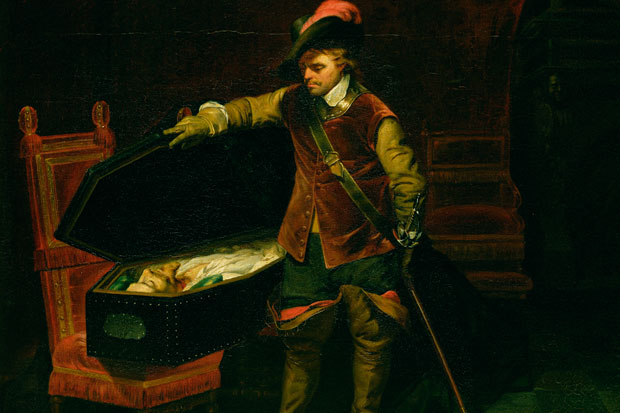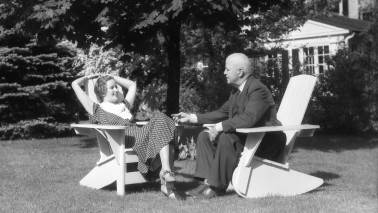How our perceptions of 17th-century England are dominated by the convulsions of the two decades at its centre! Peter Ackroyd’s book, the third of what have been announced as six volumes of his History of England, covers the period from the accession of James I in 1603 to the overthrow of his grandson James II in 1688. His priority is established by his title and by the facing portraits of Charles I and Oliver Cromwell on the front cover. He gives proportionately much more space to the conflicts of 1640–60 than to events on either side of them.
When the reign of James I and the peaceful portion of Charles I’s are placed in the shadow of a revolution which no one foresaw, and which might easily have been avoided, there is the risk that what today’s professional historians call ‘Whig distortion’ will exaggerate the stresses and quarrels of prewar politics and underplay the extent of stability and consensus. To be fair, Ackroyd is no crude Whig. He never takes the side of the parliamentarians or supposes that they were consciously forward-looking. Even so, and though he has ferreted in up-to-date studies of the period, there is a certain dated Whiggishness to his narrative — or rather to the earlier part of it, for he moves quickly over the origins of the revolution of 1688, that second summit of 17th-century Whig historio-graphy.
His account of early Stuart rule will summon classroom memories to elderly readers brought up on Whiggish depictions of constitutional conflict by G.M. Trevelyan and J.R. Tanner. Ackroyd — in the nearest we get to political sociology — takes as gospel R.H. Tawney’s long-superannuated thesis of ‘the rise of the gentry’, which gave new life to the equation of the Roundhead cause with social progress.








Comments
Join the debate for just £1 a month
Be part of the conversation with other Spectator readers by getting your first three months for £3.
UNLOCK ACCESS Just £1 a monthAlready a subscriber? Log in